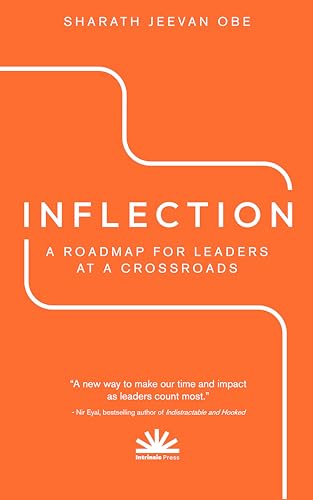
1
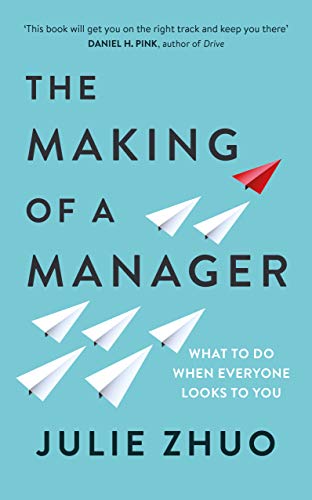
2
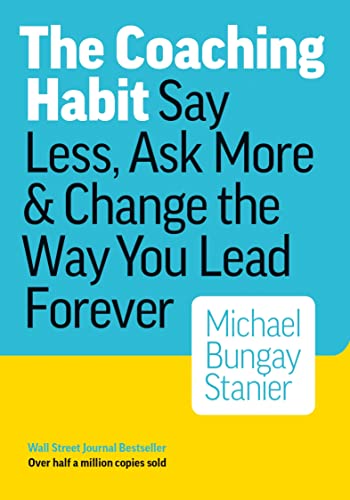
3
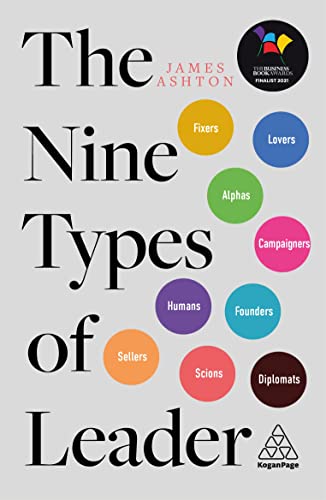
4
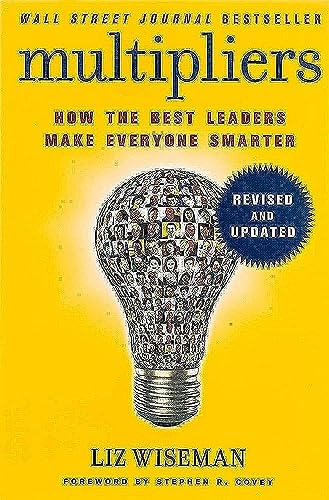
5
The complexity of today’s workplace presents leaders with challenges they once never even thought of. The following books offer valuable insights into navigating these challenges and building more resilient and successful teams. These titles provide practical advice on overcoming obstacles, fostering adaptability, and creating environments that thrive amidst adversity. Aimed at managers and leaders across all organisational levels, these books can guide those seeking to transform their leadership approaches and meet the demands of an ever-evolving world.
1
After having to cope with the COVID-19 pandemic, the cost-of-living crisis that followed, and the increasing power of generative technologies, many leaders are questioning whether much of what they’ve been taught about leadership still applies. “Inflection”, the new book by Sharath Jeevan OBE, provides them with much-needed answers on managing these inflection points. Sharath argues that preconceived models of leadership are out of date for the extraordinary times we’re living in. Instead, he delves into a different framing of leadership and explores the concept of 'inflection moments’. These tend to be turning points not only in leadership but also in everyday life, when something profound changes within ourselves or in the external environment around us. According to Sharath, the true indicator of effective leadership lies in identifying and capitalising on these pivotal moments to futureproof an organisation’s success.
2
Julie Zhuo remembers the moment when she was asked to lead a team. She felt like she’d won the golden ticket, until reality came crashing in. She was just 25 and had barely any experience being managed, let alone managing others. Her co-workers became her employees overnight, and she faced a series of anxiety-inducing firsts, including agonising over whether to hire an interviewee; seeking the respect of reports who were cleverer than her; and having to fire someone she liked. This is the book she wishes she had on day one. Here, she offers practical, accessible advice like: Don’t hide thorny problems from your own manager; you’re better off seeking help quickly and honestly. Before you fire someone for failure to collaborate, figure out if the problem is temperamental or just a lack of training or coaching. Don’t offer critical feedback in a ‘compliment sandwich’ – there’s a better way!
3
In Michael Bungay Stanier's “The Coaching Habit”, coaching becomes a regular, informal part of your day so managers and their teams can work less hard and have more impact. Drawing on years of experience training more than 10,000 busy managers from around the globe in practical, everyday coaching skills, Bungay Stanier reveals how to unlock your people's potential. He unpacks seven essential coaching questions to demonstrate how - by saying less and asking more - you can develop coaching methods that produce great results. A fresh innovative take on the traditional how-to manual, the book combines insider information with research based on neuroscience and behavioural economics, together with interactive training tools to turn practical advice into practiced habits. Witty and conversational, “The Coaching Habit” takes your work - and your workplace - from good to great.
4
“The Nine Types of Leader” introduces some obvious and some not so obvious types of leader through stories, anecdotes, and insight garnered from hundreds of encounters with world-class leaders. Featuring interviews with industry titans including Jean-Francois Decaux of JC Decaux, Michael Rapino of Live Nation, Zhang Ruimin of Haier, Gavin Patterson of Salesforce, and Isabelle Kocher of Engie, it explores how the leaders of tomorrow will improve their game by borrowing from the very best of the nine types of leader that exist today. Renowned journalist, James Ashton assesses the strengths and weaknesses of each leadership type, highlighting where and when they are best deployed, whilst helping you identify who you are and how you can improve performance. As the world seeks to recover from drastic disruption and uncertainty and the most acute test of leadership in living memory, it projects how future leaders can learn from what has gone before.
5
We’ve all had experience with two dramatically different types of leaders. The first type drains intelligence, energy, and capability from the people around them and always needs to be the smartest person in the room. These are the idea killers, the energy sappers, the diminishers of talent and commitment. On the other side of the spectrum are leaders who use their intelligence to amplify the smarts and capabilities of the people around them. When these leaders walk into a room, light bulbs go off over people’s heads; ideas flow and problems get solved. These are the leaders who inspire employees to stretch themselves to deliver results that surpass expectations. These are the Multipliers. And the world needs more of them, especially now when leaders are expected to do more with less. In this engaging and highly practical book, leadership expert Liz Wiseman explores these two leadership styles, persuasively showing how Multipliers can have a resoundingly positive and profitable effect on organizations - getting more done with fewer resources, developing and attracting talent, and cultivating new ideas and energy to drive organisational change and innovation.

1
After having to cope with the COVID-19 pandemic, the cost-of-living crisis that followed, and the increasing power of generative technologies, many leaders are questioning whether much of what they’ve been taught about leadership still applies. “Inflection”, the new book by Sharath Jeevan OBE, provides them with much-needed answers on managing these inflection points. Sharath argues that preconceived models of leadership are out of date for the extraordinary times we’re living in. Instead, he delves into a different framing of leadership and explores the concept of 'inflection moments’. These tend to be turning points not only in leadership but also in everyday life, when something profound changes within ourselves or in the external environment around us. According to Sharath, the true indicator of effective leadership lies in identifying and capitalising on these pivotal moments to futureproof an organisation’s success.

2
Julie Zhuo remembers the moment when she was asked to lead a team. She felt like she’d won the golden ticket, until reality came crashing in. She was just 25 and had barely any experience being managed, let alone managing others. Her co-workers became her employees overnight, and she faced a series of anxiety-inducing firsts, including agonising over whether to hire an interviewee; seeking the respect of reports who were cleverer than her; and having to fire someone she liked. This is the book she wishes she had on day one. Here, she offers practical, accessible advice like: Don’t hide thorny problems from your own manager; you’re better off seeking help quickly and honestly. Before you fire someone for failure to collaborate, figure out if the problem is temperamental or just a lack of training or coaching. Don’t offer critical feedback in a ‘compliment sandwich’ – there’s a better way!

3
In Michael Bungay Stanier's “The Coaching Habit”, coaching becomes a regular, informal part of your day so managers and their teams can work less hard and have more impact. Drawing on years of experience training more than 10,000 busy managers from around the globe in practical, everyday coaching skills, Bungay Stanier reveals how to unlock your people's potential. He unpacks seven essential coaching questions to demonstrate how - by saying less and asking more - you can develop coaching methods that produce great results. A fresh innovative take on the traditional how-to manual, the book combines insider information with research based on neuroscience and behavioural economics, together with interactive training tools to turn practical advice into practiced habits. Witty and conversational, “The Coaching Habit” takes your work - and your workplace - from good to great.

4
“The Nine Types of Leader” introduces some obvious and some not so obvious types of leader through stories, anecdotes, and insight garnered from hundreds of encounters with world-class leaders. Featuring interviews with industry titans including Jean-Francois Decaux of JC Decaux, Michael Rapino of Live Nation, Zhang Ruimin of Haier, Gavin Patterson of Salesforce, and Isabelle Kocher of Engie, it explores how the leaders of tomorrow will improve their game by borrowing from the very best of the nine types of leader that exist today. Renowned journalist, James Ashton assesses the strengths and weaknesses of each leadership type, highlighting where and when they are best deployed, whilst helping you identify who you are and how you can improve performance. As the world seeks to recover from drastic disruption and uncertainty and the most acute test of leadership in living memory, it projects how future leaders can learn from what has gone before.

5
We’ve all had experience with two dramatically different types of leaders. The first type drains intelligence, energy, and capability from the people around them and always needs to be the smartest person in the room. These are the idea killers, the energy sappers, the diminishers of talent and commitment. On the other side of the spectrum are leaders who use their intelligence to amplify the smarts and capabilities of the people around them. When these leaders walk into a room, light bulbs go off over people’s heads; ideas flow and problems get solved. These are the leaders who inspire employees to stretch themselves to deliver results that surpass expectations. These are the Multipliers. And the world needs more of them, especially now when leaders are expected to do more with less. In this engaging and highly practical book, leadership expert Liz Wiseman explores these two leadership styles, persuasively showing how Multipliers can have a resoundingly positive and profitable effect on organizations - getting more done with fewer resources, developing and attracting talent, and cultivating new ideas and energy to drive organisational change and innovation.
© Five Books 2026